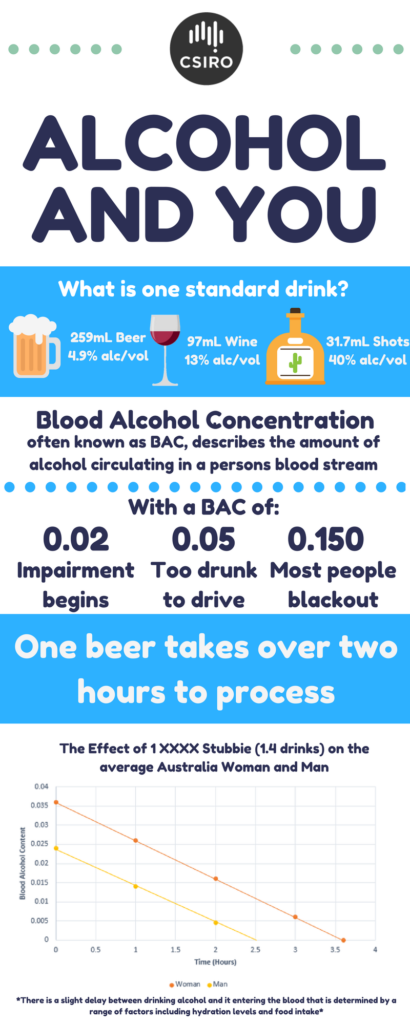Discover the surprising answer to the age-old question: just how many beers does it really take to get drunk?

Image courtesy of COPPERTIST WU via Pexels
Table of Contents
As the weekend approaches, many of us find ourselves pondering the age-old question: how many beers does it take to get drunk? It’s a common query that lacks a simple answer, as the science behind intoxication is far more complex than just counting drinks. To truly understand the process, we must delve deep into the world of alcohol metabolism, individual tolerance levels, and the various factors that can influence how quickly we feel the effects of alcohol.
Understanding Alcohol Metabolism
Alcohol metabolism begins as soon as we take our first sip. When alcohol is ingested, it is rapidly absorbed into the bloodstream through the stomach and small intestine. From there, the liver works to break down the alcohol using enzymes, such as alcohol dehydrogenase and aldehyde dehydrogenase. These enzymes convert alcohol into acetaldehyde, then into acetic acid, which is eventually metabolized and eliminated from the body.
Several factors can influence the rate at which alcohol is metabolized, including body weight, metabolism rate, and genetics. Individuals with a higher body weight tend to metabolize alcohol more efficiently, while those with a slower metabolism may feel the effects of alcohol more quickly. Additionally, genetic factors can impact the activity of alcohol-metabolizing enzymes, potentially affecting how our bodies process alcohol.
Individual Tolerance Levels
It’s important to recognize that not everyone responds to alcohol in the same way. Individual tolerance levels can vary greatly, depending on a variety of factors. Body weight, gender, and genetics all play a role in determining how much alcohol a person can consume before feeling intoxicated. Generally, women tend to have a lower tolerance for alcohol than men, as they tend to have a higher percentage of body fat and lower levels of alcohol dehydrogenase enzyme.
It’s crucial to distinguish between tolerance and dependence when considering individual responses to alcohol. While tolerance refers to the ability to consume greater amounts of alcohol without feeling intoxicated, dependence is a more serious condition that involves physical and psychological reliance on alcohol.
Influencing Factors on Intoxication
Several external factors can also influence how quickly we become intoxicated. For example, consuming food before or during drinking can help slow down the absorption of alcohol into the bloodstream, potentially delaying the onset of intoxication. Additionally, mixing different types of alcohol can impact how our bodies metabolize alcohol, potentially leading to a stronger or longer-lasting effect.

Image courtesy of blog.csiro.au via Google Images
Hydration levels and sleep patterns can also play a role in how alcohol affects us. Dehydration can exacerbate the effects of alcohol, leading to a more rapid onset of intoxication. Similarly, lack of sleep can impair our body’s ability to metabolize alcohol effectively, potentially increasing the likelihood of feeling drunk more quickly.
Conclusion
So, how many beers does it take to get drunk? The answer is not as simple as counting drinks. The science of alcohol metabolism, individual tolerance levels, and various influencing factors all contribute to how alcohol affects us. While it’s important to understand these processes, it’s equally important to practice responsible drinking habits and know your limits. By staying informed and aware of the effects of alcohol on our bodies, we can make more informed decisions and enjoy our drinks in a safe and mindful manner.
Whether you’re enjoying a casual night out with friends or unwinding after a long week, remember to raise your glass to the intriguing science behind getting drunk, and always drink responsibly.
FAQs
Explore some common questions related to the science of how many beers it takes to get drunk.
Does body weight impact how quickly you get drunk?
Yes, body weight plays a role in alcohol metabolism. Individuals with higher body weight may metabolize alcohol more efficiently, potentially requiring more drinks to feel intoxicated.
Can mixing different types of alcohol affect intoxication?
Yes, mixing different types of alcohol can impact how your body metabolizes alcohol, potentially leading to a stronger or prolonged effect. It’s essential to be mindful of the types and quantities of alcohol you consume.
How does hydration affect alcohol intoxication?
Dehydration can exacerbate the effects of alcohol, leading to a quicker onset of intoxication. Staying hydrated while consuming alcohol can help minimize its effects and promote responsible drinking habits.
What is the difference between tolerance and dependence on alcohol?
Tolerance refers to the ability to consume more alcohol without feeling intoxicated, while dependence involves a physical and psychological reliance on alcohol. It’s crucial to understand these distinctions and practice responsible drinking habits to maintain overall well-being.
Generated by Texta.ai Blog Automation
Leave a Reply